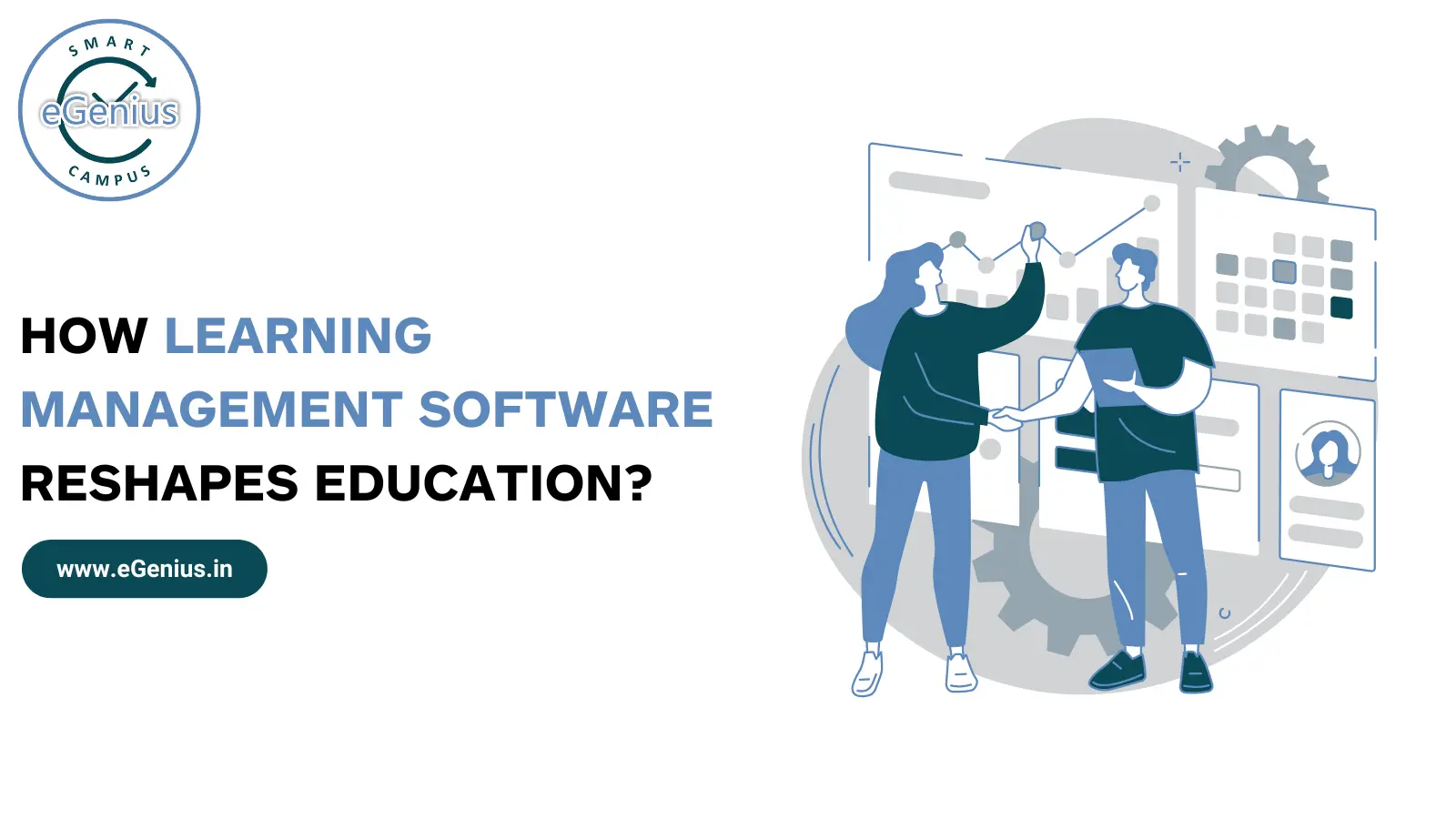Education has always been a dynamic field, constantly evolving to meet the needs of students and educators alike. Learning Management Software (LMS) has emerged as a powerful tool for reshaping education delivery in recent years. From K-12 schools to higher education institutions, LMS platforms are transforming traditional classrooms into digital learning environments that are more flexible, accessible, and engaging. In this blog, we will explore the evolution of educational technology, the key features of Learning Management Software, its benefits and challenges, and what the future holds for this innovative technology.
Table of content
- The Evolution of Educational Technology
- Key Features of Learning Management Software
- Benefits of LMS in Education
- Challenges and Considerations
- The Future of Learning Management Software
The Evolution of Educational Technology
Educational technology has come a long way since chalkboards and overhead projectors. In the past, technology in education was primarily limited to audiovisual aids and computer labs. However, the advent of the internet and digital devices has revolutionized learning. Online courses, virtual classrooms, and interactive simulations have become commonplace, allowing students to learn at their own pace and convenience.
Learning Management Software represents the latest advancement in educational technology. Initially developed for corporate training, LMS platforms have found their way into academic institutions, providing a comprehensive solution for managing and delivering educational content. These platforms offer a range of tools and features that enable educators to create, distribute, and assess learning materials efficiently.
Key Features of Learning Management Software
Learning Management Software offers various features catering to educators’ and students’ needs. Some of the key features include:
- Course Management: LMS platforms allow educators to create and organize courses easily. They can upload course materials, set learning objectives, and schedule assessments.
- Content Delivery: LMS enables digital content distribution, such as videos, presentations, and reading materials. This feature ensures that students can access the necessary resources anytime, anywhere.
- Assessment and Evaluation: With built-in assessment tools, educators can create quizzes, assignments, and exams. LMS also provides automated grading and feedback, saving time and effort.
- Communication and Collaboration: LMS platforms offer communication tools such as discussion forums, chat rooms, and messaging systems. These features foster interaction and collaboration among students and instructors.
- Tracking and Reporting: LMS provides detailed analytics and reports on student progress and performance. Educators can track attendance, completion rates, and assessment scores to identify areas for improvement.
- Customization and Personalization: LMS platforms allow for customization to meet the specific needs of institutions and educators. Personalized learning paths can be created to cater to individual student needs.
- Integration with Other Tools: LMS can integrate with other educational tools and software, such as plagiarism checkers, video conferencing tools, and e-learning content providers.
Benefits of LMS in Education
Adopting Learning Management System offers numerous benefits for educational institutions, educators, and students. Some of these benefits include:
- Accessibility: LMS platforms make education accessible to students regardless of their location. With an internet connection, students can access course materials and participate in classes from anywhere.
- Flexibility: LMS allows flexible learning schedules, accommodating students with different learning paces and lifestyles. This flexibility is especially beneficial for working professionals and non-traditional students.
- Engagement: Interactive features such as multimedia content, gamification, and discussion forums enhance student engagement and motivation.
- Cost-Effectiveness: By reducing the need for physical infrastructure and printed materials, LMS platforms can lead to significant cost savings for educational institutions.
- Scalability: LMS can accommodate large numbers of students and courses, making it suitable for institutions of all sizes.
- Efficient Administration: LMS streamlines administrative tasks such as enrollment, grading, and reporting, allowing educators to focus on teaching.
- Continuous Learning: With access to a wide range of resources and materials, students can continue learning beyond the classroom.
Challenges and Considerations
While Learning Management Software offers many advantages, there are also challenges and considerations to keep in mind:
- Digital Divide: Not all students have access to the necessary technology and internet connectivity, leading to disparities in learning opportunities.
- Technical Issues: LMS platforms can face glitches and downtime, disrupting learning.
- Training and Support: Educators and students may require training and support to use LMS platforms effectively.
- Data Privacy: Protecting student data and privacy is critical for institutions using LMS.
- Resistance to Change: Some educators and institutions may resist adopting new technologies and changing traditional teaching methods.
Learning Management Systems for Schools: Managing Student Progress and Assessments.
The Future of Learning Management Software
The future of Learning Management Software looks promising, with continued advancements in technology and increasing demand for digital learning solutions. Some of the trends that are likely to shape the future of LMS include:
- Artificial Intelligence: AI-powered LMS platforms will offer personalized learning experiences, adaptive assessments, and intelligent tutoring systems.
- Mobile Learning: With the proliferation of smartphones and tablets, mobile learning will become more prevalent, allowing students to learn on the go.
- Virtual and Augmented Reality: VR and AR technologies will provide immersive learning experiences, enhancing engagement and understanding.
- Gamification: Gamified learning experiences will become more common, motivating students through rewards and challenges.
- Blockchain Technology: Blockchain can enhance the security and transparency of student records and credentials.
- Microlearning: Bite-sized learning modules will cater to busy students seeking quick, focused learning experiences.
- Integration with Industry: LMS platforms will increasingly integrate with industry-specific tools and certifications, aligning education with workforce needs.
eGenius Learning Management Software has undoubtedly reshaped education, offering many benefits and opportunities for students and educators. As technology evolves, LMS platforms will play an increasingly vital role in delivering flexible, accessible, and engaging learning experiences. However, addressing the challenges and considerations associated with LMS adoption is essential to ensure that all students can benefit from this transformative technology. By embracing the potential of Learning Management Software, educational institutions can prepare students for success in an ever-changing world.
Know more about the College Management System and School Management System.















